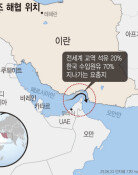[Opinion] Cheating
Cunning is one of the most commonly used Konglish (localized English) expressions. Given the meaning of the word cunning, it dose not sound completely absurd, though. When you try to explain a disrespectful behavior during a test, you must say, cheating instead of cunning. The act of cunning (or cheating) itself is not a foreign export, however. The history of cheaters in this country dates back to Chosun Dynasty. While taking a test to become government officials, some of applicants cheated. And they did that in much similar ways to what people do these days they switched answer papers, sent someone else and sneaked out questions in advance. In one case, historical records note, there was a man who tucked a cheating paper into his nostril.
▷ The East seems to have a longer history of cheating than the West. Shim Woo-yeop, a professor at Chuncheon University, wrote in his thesis that two volumes of fine-letter books found in China some time ago later turned out to be cheating sheets. According to Shim, a bamboo can with a straw rope found in Bansu-dang, Sunggyungwan Hall, where tests were held during Chosun Dynasty, is believed a cheating tool. A North Korean childrens song has lyrics that say Dont cast a side glance./You might feel happy when you turn in the answer paper./But where is goodness of your heart? / Dont cast a side glance. This shows that cheating is not something unusual in North Korea, either.
▷ In fact, cheating has long been a common practice, and graduate schools are no exception when it comes to cheating. They often write something on desks before a test begins. School authorities then, at times, tell students to change seats. A young man who passed a lawyer examination reportedly cheated during a judicial training course, and got a three-month suspended. People keep inventing genuine ways to cheat by using mobile phones or the Internet. This country is not the only one, it seems. In a recent survey on American high school students, 74% answered that they had cheated before, and further most of them said they hardly felt guilty about it.
▷ Lawmaker Jung Mong-jun admitted that he was suspended by the university he attended after caught while cheating. Given the severity of the penalty, he must have done something terribly wrong or the inspector who caught him must have been very stringent. Because, it is usual for a student to get failed in the certain subject when he or she gets caught. Professor Shim explains that students who cheat are mostly either less self-restraint or overly ambitious. I wonder which was Jungs case.





![[단독]“두건 쓴 무장경비대 길목마다 검문…택시로 20시간 달려 탈출”](https://dimg.donga.com/c/138/175/90/1/wps/NEWS/IMAGE/2026/03/05/133470282.1.jpg)

